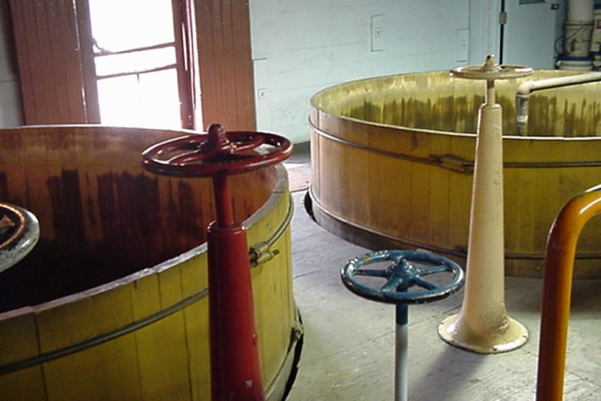With coal mining revenues declining, more state budget cuts looming and the predicted domino effect that often hits rural communities especially hard, smaller utilities in West Virginia will need to manage their resources more efficiently than ever.
To help these utilities, West Virginia University National Environmental Services Center is presenting a free, full day workshop titled Sustainable Management of Rural and Small Water and Wastewater Systems to be held March 31 from 8:30 a.m. to 4:30 p.m. at Twin Falls Resort State Park near Maben.
“Clean water and treated sewage are vital to public health,” said workshop instructor Lauri Andress, WVU assistant professor in the Department of Health Policy, Management, and Leadership in theSchool of Public Health. “The WVU team includes experts on every facet of the best management practices for well-run water districts.”

“The strength of this workshop is that it leverages a wide variety of expertise from WVU and the University of Kentucky,” said Katherine Garvey, director of WVU’s Land Use and Sustainable Development Law Clinic.
“Expertise has been tapped from engineering, extension, public health, water and wastewater treatment, business management, and financial, social and legal disciplines,” Garvey, who is also instructing, added. “Plus, the team will offer follow-up contact with attendees after the workshop to help them implement their improvement plans.”

The workshop gives small utilities a simple way to assess their systems’ strengths and weaknesses. The assessment will then be used to develop an easy-to-follow management plan for improving their operations.
The workshop focuses on 10 key management areas such as operational optimization and resiliency, infrastructure stability, product quality, water resource adequacy, financial viability, stakeholder understanding and support.
Funded by the U.S. Department of Agriculture, this program is a partnership of WVU’s National Environmental Services Center and the University of Kentucky’s Water Resources Research Institute. A similar workshop will be offered later in Kentucky.
“We are excited to bring this workshop to the state’s water systems in an effort to ensure a general level of good health for the citizens of West Virginia,” Andress said.
The workshop is targeted to participants who are involved in the operation or management of water or sewage systems that serve 4,000 or fewer customers. Small water and wastewater system managers, operators and their board members are invited to attend along with local decision makers such as mayors and county commissioners.
To register online, go to http://www.eventbrite.com/e/sustainable-management-of-rural-and-small-systems-workshop-tickets-31543138376.
An operator certificate for 6.0 Continuing Education Hours will be given upon request.
Limited travel expenses are available to qualified individuals on a first come, first served basis.
-WVU–

